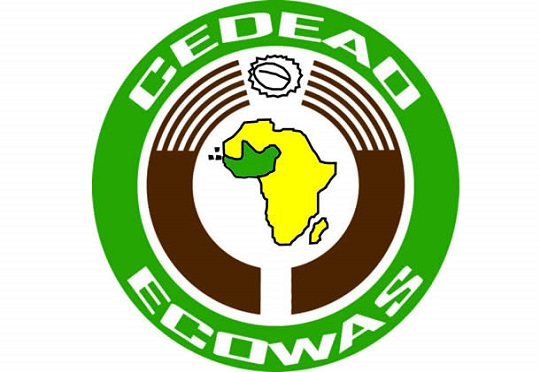ECOWAS existential test and Nigeria’s dilemma
The news on Sunday about the exit of Niger, Chad and Burkina Faso from ECOWAS is a blow to the Economic Community of the West African countries since its establishment in 1975. Due to the rapid change of leadership across the West African countries, ECOWAS is expected to play a leading role in mediating and […]

The news on Sunday about the exit of Niger, Chad and Burkina Faso from ECOWAS is a blow to the Economic Community of the West African countries since its establishment in 1975. Due to the rapid change of leadership across the West African countries, ECOWAS is expected to play a leading role in mediating and addressing political crises within its member states. No doubt, the exit of these countries has limited ECOWAS’s ability to engage in conflict resolution efforts, which will affect political stability in the region. With its headquarters in Abuja, it is expected Nigeria will play a vital role.
On the contrary, Tinubu extended Nigeria’s divisive rhetoric into ECOWAS. Following the coup d’etat in the Niger Republic, Tinubu attempted to go to war with Niger. The attempt soured our relationship, given he only succumbed to pressure to retreat. We now see the consequences of his actions.
Whatever one thinks of Tinubu, it is clear he is not an effective leader, as I have been saying for the past six months. Under Tinubu, it has become difficult for ECOWAS to deliver anything. He has created a divisive precedence with his public statements and positions. He has made ECOWAS and Nigeria look weak. The exit of these countries, an eventual consequence of his actions, has weakened Nigeria’s traditional leadership role within ECOWAS, both economically and politically. It is incomprehensible to see one person causing the disintegration of a 49-year union in just eight months.
As I will argue, Nigeria could indeed have better utilised its position in ECOWAS even before Tinubu. We could have advocated for laws that protect local industries, promote manufacturing, and curb excessive imports to deter the region from becoming a dumping ground for foreign goods. This is one of the few reasons for the argument around Nigeria’s financial contributions and our role in the governance of the bloc.
- Climate change: Nigeria to reduce emissions through carbon market
- Nwabali returns to training, team medics to decide his fate today
Nigeria shares its borders with Niger and Chad through five northern states: Sokoto, Kebbi, Zamfara, Katsina, and Borno. Chad borders Nigeria through Borno state. Nigerian states do not directly share a border with Burkina Faso but share a border with two common countries—Niger and Benin. All three countries are landlocked; none of them have coastlines along the ocean or any major bodies of water, making them dependent on other countries for intercontinental trade. This tells you the risk these countries are taking to break away.
ECOWAS has been coordinating regional border security and combating cross-border threats such as terrorism, peacekeeping missions and smuggling. The Sahel region, which includes Burkina Faso and Niger, has been a hotspot for terrorist activities. The exit of these countries will lead to a fragmented approach to counterterrorism, making it more challenging for Nigeria to secure its borders effectively and coordinate and combat security threats in the region. It will reduce the pool of potential contributors to the peacekeeping missions, placing a heavier burden on Nigeria in terms of manpower, resources, and diplomatic efforts to address these regional conflicts.
Economically, ECOWAS actively promotes infrastructure development, including the construction of roads and railways, which are crucial for facilitating cross-border trade and regional connectivity. Trade is reportedly slowing down in Africa, and Nigeria is investing heavily in the region to improve it. The exit of these countries will cause losses to Nigeria as the funding from these investments comes from loans. The gas pipeline project from Warri through Niger to Algeria, costing $13 billion, will now be in doubt. The pipeline is expected to transport 30 billion cubic meters of gas daily, but this exit will jeopardise the potential benefits to Nigeria, West Africa and Europe. The Kano-Maradi railway project is another significant initiative that Niger’s potential exit would impact while making it more difficult for Nigeria to repay the $2 billion loan with potentially limited revenue.
As a major economic player in ECOWAS, Nigeria exports a range of goods to these countries, including agricultural products, machinery, and consumer goods. For example, Nigeria is Niger’s third-biggest export customer, where it sells 16 per cent of its exports. Exports from Nigeria to Niger increased from $39 million in 1995 to $193 million in 2022. Nigerian industries export goods like cement, raw agriculture, oil and processed food. There is also the potential market for Dangote’s refined oil products to be exported to these countries.
Nigerian exporters will have reduced access to the markets in Burkina Faso, Niger, and Chad, impacting their export volumes. The biggest losers in Nigeria will be the northern traders on the borders of Niger and Chad, which is a big blow to their ailing economic activities. As we recognise the significant economic implications for Nigeria, disruption of our relationships will only result in security and economic setbacks, affecting communities, traders and businesses. It will change our socio-economic dynamics and complicate our revenue generation system.
Therefore, we need all the stakeholders- ECOWAS, Tinubu, state governors, and the National Assembly—to come together to seek amicable solutions to the issues raised by these countries. Tinubu must not be allowed to put Nigeria’s interest at risk again.
